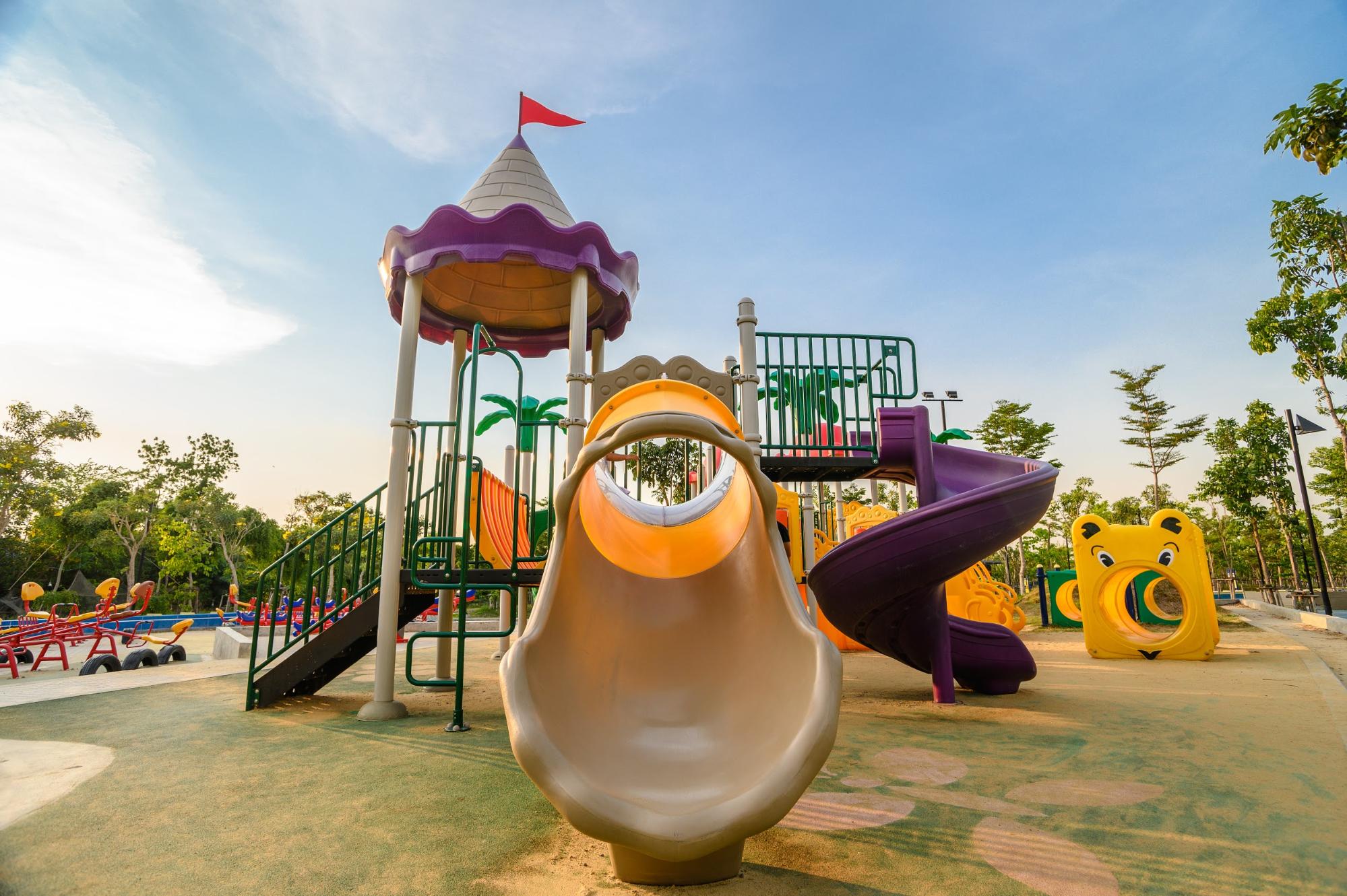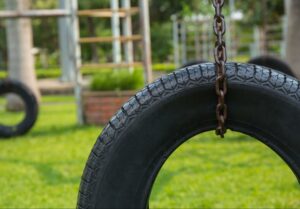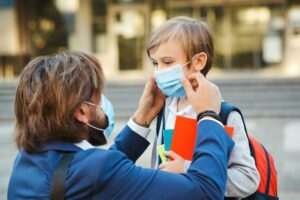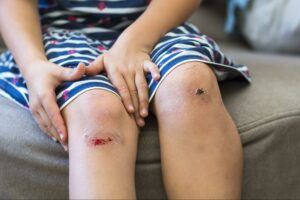
Safety Hazards in Child Care Facilities | Daycare Safety Risks
Sending a child to a daycare facility is a common choice for many parents. The vast majority of childcare centers do a good job of prioritizing safety and child supervision, but parents should still learn to recognize what negligent child care facilities look like in order to protect their children from injuries and trauma.
Below we provide a broad overview of safety hazards your child might encounter at a child care facility. If your family needs guidance from a personal injury attorney in West Virginia, please get in touch – we would be happy to provide a complimentary consultation.
Common Safety Hazards in Child Care Facilities
Many dangerous items and scenarios create safety hazards that can cause injuries to children at a daycare center. Some common hazards include:
Falling Objects
Kids are curious and sometimes rambunctious. When playing or grabbing for items above their height, they risk suffering injuries from falling objects, especially heavy ones. A blow to a young child’s head from a falling object can cause injury to a child’s developing brain that leads to lifelong health complications and physical, emotional, or cognitive impairments.
Child care facilities should always either store items at an appropriate height for children to reach them, or secure objects that could harm a child if they fell on the child.
Choking
Food and small objects present a choking hazard for children, especially infants and toddlers. Child care facilities that prepare meals for kids must cut veggies, fruits, sandwiches, and other food in bite-size pieces to prevent choking.
Additionally, they must avoid making toys and games with small pieces accessible to young children, in particular, because those items are not safe for kiddos who naturally want to put everything in their mouths.
Old Playground Equipment
Many child care facilities have outdoor play space where children can get fresh air, fun, and physical activity.
Old, rickety, and/or rusty swing sets, slides, and other playground equipment can injure children by leading to falls or dangerous lacerations and abrasions. A cut from rusty playground equipment can cause a dangerous infection requiring hospitalization, or may leave a permanent scar.
Inadequate Supervision
Even daycare centers that have perfect toys and safe equipment can still create a safety hazard for kids when they do not supply enough adult supervision. Young children and toddlers can fall, choke, and suffer other injuries when staff fails to monitor their play and eating.
Sometimes a lack of supervision results from incompetence, laziness, or perhaps poorly trained staff (discussed below). Other times, daycare centers simply do not hire enough staff to provide adequate supervision for the number of children in their care.
Poorly Trained Staff
Child care facilities typically provide services beyond simple babysitting. In addition to simply supervising children, staff members in daycares also need adequate training for emergency situations.
Young children and toddlers are accident-prone. Many are still unsteady on their feet, and all have not yet developed a safe understanding of risks and hazards. Day care staff must have basic first aid training to ensure the safety of children who get injured. The inability to treat a choking or bleeding child can have fatal consequences.
Neglect
Some child care centers neglect the children who stay with them during the day. Neglect is a form of abuse and sometimes is a result of understaffing, but also can be intentional.
Child care centers have a legal duty to provide needed care to kids. Failure to provide that care can cause long-term emotional and physical harm to a child. Examples of neglect that can occur at a child care facility include:
- Failure to change soiled diapers or clothing
- Failure to help children go to the bathroom
- Failure to provide proper nutrition
- Failure to ensure children receive enough liquids or water
- Failure to seek medical treatment when an injury occurs
Neglectful daycare providers often fail at multiple required tasks at once. If a daycare seems overly chaotic, the staff seems overwhelmed, or your child is always hungry at the end of the day, those may be signs the facility is neglecting your child.
Unfortunately, some child care providers intentionally abuse children. Sometimes abuse is physical, which makes it easier to identify when parents find unexplained bruises, welts, or other marks. Yet, emotional and verbal abuse can be just as damaging to children, sometimes more damaging than physical abuse, and it is harder to detect. If you suspect abuse at your child’s educational facility, call our Bridgeport, WV injury attorneys today.
Unsanitary Environment
Older babies, toddlers, and some young children put everything they see in their mouths and also touch almost everything they can. An unclean child care facility is a “petri dish” growing all types of bacteria and spreading germs among staff and children.
Children share germs, but kids in unsanitary environments risk exposure to far worse than a common cold. Children might contract food poisoning or cryptosporidiosis, a gastrointestinal illness caused by a parasite commonly found in child care facilities.
Additional Child Care Considerations During the Coronavirus Pandemic
With the public health crisis caused by the COVID-19 pandemic still raging nationwide, some child care facilities and daycares have remained closed, others are reopening, while some have been open the entire time. Because of the crisis, there are special precautions daycares should be taking to keep young children, and the family members they go home with, safe.
Many daycares have already started using social distancing and safety practices such as taking the child’s temperature at drop off, keeping children in small groups and out of close contact with one another, wearing appropriate masks and face coverings, and practicing rigorous handwashing techniques.
The Centers for Disease Control and Prevention (CDC) has issued specific guidelines and urged child care providers to follow them. These guidelines ask quality child care centers to:
- Implement social distancing strategies.
- Intensify cleaning and disinfection efforts.
- Modify drop off and pick up procedures.
- Implement screening procedures up arrival.
- Maintain an adequate ratio of staff to children to ensure safety.
- When feasible, staff members and older children should wear masks within the facility.
- Masks should not be put on babies and children under age two because of the danger of suffocation.
Child care programs and facilities should also follow the guidance of their child care licensing boards and local health departments on how to plan the best course of action to keep children, staff, and families safe.
What to Do If Your Child Has Been Injured in a Day Care Facility
When you send your child to daycare, you expect there to be a safe, nurturing environment for your child. Staff should have adequate training, and should follow best practices to minimize safety hazards.
If your child has suffered injuries at a child care facility, you have the right to hold that facility accountable and receive compensation for the harm caused to your child. The Miley Legal Group has the resources and knowledge to hold negligent daycare operators accountable for harming children in their care. Contact us today online or at 304-745-2636 for a free case evaluation with a personal injury attorney to discuss your child’s injuries and the best path forward for you and your family. Whether you need an injury attorney in Grafton or a car accident lawyer in WV, we are happy to help.






